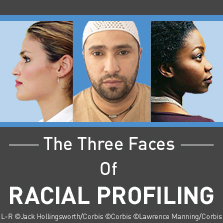
On September 28, third-generation Alabama farmer Brian Cash started the day with 64 employees tending the produce in his fields. Many had worked with Brian and his father for decades, and were considered "like family" on their farm.
But just one day later, that number dwindled to 11 people, leaving this family business on the verge of collapse. What could cause 85 percent of the farm's workforce to disappear ŌĆö literally overnight?
That day, a federal district court in Birmingham, Ala. allowed much of, Alabama's draconian racial profiling law, to go into effect across the state. Immediately following the decision, families began in fear, withdrawing their U.S. citizen children from , and leaving behind the homes and businesses they had worked for years to build.
Although a federal appeals court blocked two provisions of the law on October 14, the court left intact much of the law, including the provision that requires Alabama police to verify the immigration status of people stopped and suspected to be in the state unlawfully.
Alabama, scarred by a long history of civil rights struggles, became the first state where a state-sanctioned racial profiling law has gone into effect, after attempts to block it in court were unsuccessful. This newly legalized racial profiling of Latinos includes those who are lawfully present in the U.S., like taxi driver Cineo Gonzalez. When Gonzalez questioned why his first grade daughter, who was born in Alabama, was singled out at school and given information about H.B. 56, he was told by a school official that that the document was handed out to "all children who aren't from here."
Alabama is the latest in a string of states to follow Arizona's lead by passing laws sanctioning the use of racial profiling. Since S.B. 1070 passed in Arizona last year, Georgia, Indiana, South Carolina, Utah and Alabama have all joined the ranks of the "show me your papers" states, even though only Alabama's law has gone into effect. These states are bent on forcing Latinos and immigrants out of their states by creating an unbearably hostile environment. These unconstitutional laws discriminate on the basis of race and national origin, and sweep in U.S. citizens, lawful permanent residents and other people lawfully in the U.S.
The problem of racial profiling of immigrants is not limited to the states. The Obama administration's federal immigration enforcement system includes two programs that are fraught with civil rights problems.
The 287(g) program delegates authority to enforce federal immigration law to local police with no accountability or oversight from the federal government, thereby allowing local police with demonstrated records of biased policing to continue racial profiling with impunity.
Also, the centerpiece of the Obama immigration enforcement system is the controversial Secure Communities program, or S-COMM, which the administration is aggressively rolling out nationwide, despite vociferous objections from the governors of Illinois, New York, and Massachusetts and many county officials and law enforcement leaders across the country.
S-COMM encourages the use of pretextual arrests by state and local law enforcement by requiring that fingerprints are run through the federal immigration database every time someone is arrested for any infraction, however minor ŌĆö even if they are never charged by the county or the arrest is later found to be wrongful or unconstitutional. As a result, local police understand that arresting someone at a traffic stop, even without charging them, can lead to their swift deportation.
The Obama administration has blithely ignored community cries of civil rights violations under S-COMM and has repeatedly stated that the program reduces opportunities for profiling. But highlighted a new report that showed 93 percent of immigrants arrested under Secure Communities were Latinos, although Latino immigrants are only about two-thirds of the illegal immigrants in the United States.
The problem of racial profiling of immigrants is not limited by borders. Across the country, people of color are being targeted based on their skin color and accents. This is not immigration enforcement; this must be called out for what it is: racial profiling. It is discriminatory and unconstitutional, and we must stop it from becoming the law of our land.
If you are in the Washington, D.C. ŌĆö area please join the └Ž░─├┼┐¬Į▒Įß╣¹ for our "Three Faces of Racial Profiling" policy discussion on Thurs., Oct. 27, 2011 at 10 a.m.
Learn more about racial profiling: Sign up for breaking news alerts, , and .

